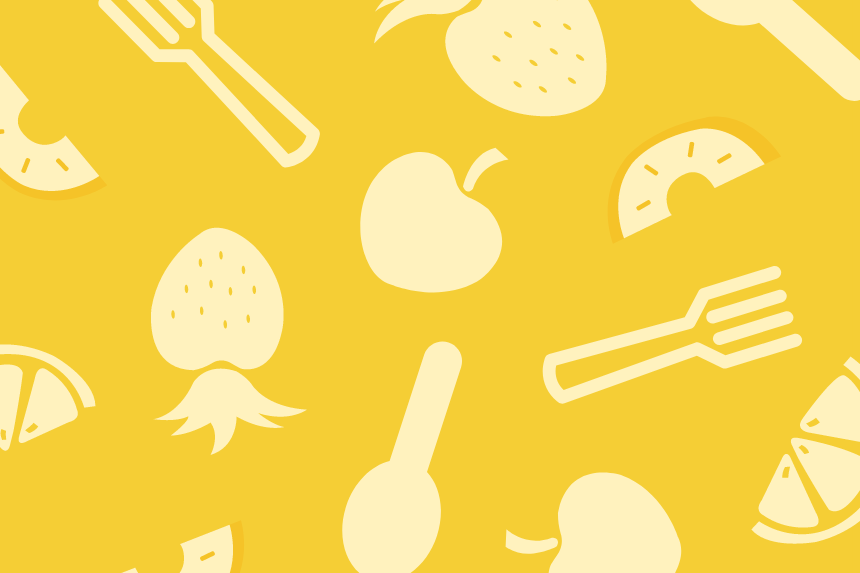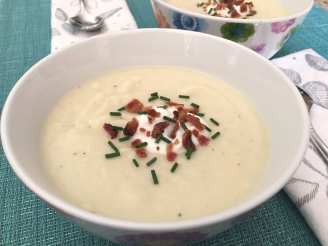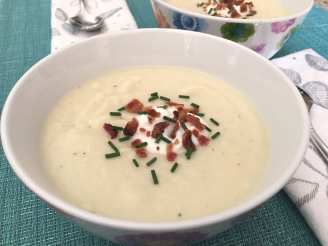Classic Vichyssoise

- Ready In:
- 16hrs
- Ingredients:
- 8
- Serves:
-
6-8
ingredients
- 1 1⁄2 lbs leeks, for 3/4 to 1 lb. trimmed white parts
- 1 1⁄2 lbs chicken backs
- 5⁄8 teaspoon salt, in all
- 2 tablespoons unsalted butter
- 4 ounces onions, sliced (1 medium onion)
- 6 ounces baking potatoes, peeled and sliced (8 oz. unpeeled)
- 1 1⁄2 cups milk
- 1 cup heavy cream (or more as needed)
directions
- Start the chicken stock 2 days in advance: Trim away all green sections from the leeks; cut open the whites as necessary to wash out the grit, then dry and refrigerate in a plastic bag. Wash and reserve the leek greens.
- Wash the chicken backs, poking into the crevices with your finger to rinse away all bits of liver. (Chicken backs are best because they don't make an overly gelatinous stock; for cartilaginous parts like breast trimmings or wings, use only a pound.).
- Simmer the chicken and 1/4 teaspoons salt for 6 hours in water to cover, skimming off all scum (don't try to remove the fat); after 2 hours, add some or all of the leek greens. Strain the stock finely, making about 2 cups; cool and refrigerate. Before using, scrape off the congealed fat.
- Cook and refrigerate the soup base 1 day in advance: Saute the onions in a heavy 2-quart saucepan, starting on fairly high heat and reducing to medium as soon as the fat clarifies. When the onions are golden, increase the heat and add the leeks gradually; lower the heat again as they cook, stirring repeatedly to keep the juices from browning.
- In 15 to 20 minutes, when everything is golden but not browned, add the stock and 3/8 teaspoons salt, and bring to a boil. Add the potatoes, partially cover the pan, and simmer actively for 35 minutes. (Don't use too much potato, or the soup will end up too thick.).
- In two batches, finely puree the soup base in a blender at high speed, then pour it back into the saucepan. Rinse out the blender with the milk, add it to the soup base, and heat slowly until it just starts to simmer, stirring continually across the pan bottom and around the sides.
- Finally, put the soup through a very fine strainer, scraping hard with a rubber spatula to push everything through. Cool quickly and refrigerate.
- On serving day, stir the cream gradually into the softly jelled soup. Carefully adjust the consistency, adding more cream (or water or both) as necessary to make a thick but pourable liquid; a spoonful poured back into the bowl should level out, not stay in soft peaks. Taste for seasoning -- don't oversalt, or you'll lose the natural sweetness of the onion and cream.
- Vichyssoise keeps refrigerated up to 10 days.
Questions & Replies
Got a question?
Share it with the community!
Reviews
Have any thoughts about this recipe?
Share it with the community!
RECIPE SUBMITTED BY
I am a New York City attorney with over 40 years' serious-amateur cooking experience. My cooking is the antithesis of Mediterranean cuisine: I generally want a blended richness rather than a light freshness (a Strauss tone poem instead of a Telemann concerto, or cooking down jams instead of using liquid pectin). I value basic quality ingredients like vanilla beans or good butter, but have little use for such "in" things as brining, food processors, sun-dried tomatoes, or chichi chocolates that taste weird. I think Americans' tastes are being corrupted by a gross overuse of salt and lemon juice in recipes for just about everything. My favorite cooking is classic French cuisine, but I try to learn how to cook for myself any dish I've eaten that I want to be sure of having again in the future. Among my favorite cookbooks are Escoffier's "Le Guide Culinaire" in French, and Jacques Pepin's two early books on technique and method. (As for "Mastering the Art of French Cooking," it was a landmark when it appeared in 1961, and many of its recipes are still hard to beat; but a half century's experience has uncovered enough errors and misinformation to make it no longer as trustworthy as we all once thought.) Like any other repetitive activity, the actual mechanics of cooking can sometimes be a chore -- but the joy of eating the finished product remains undiminished!


